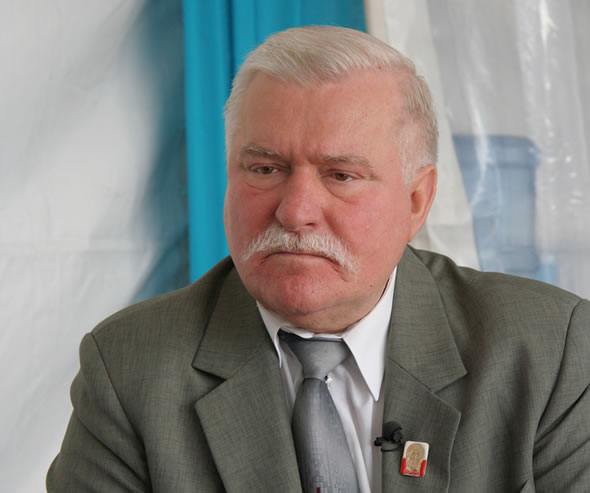
ESI with EU Commissioner Oettinger at expert workshop: Unblocking the refugee relocation impasse? (15 May 2018)
Kernpunkte dieses Vorschlags sind: eine Koalition von betroffenen Staaten, in denen das Recht auf Asyl noch verteidigt werden soll; transparente und rechtskonforme Beschleunigung von Asylverfahren, schnelle Rückführungen jener, die keinen Schutz in der EU brauchen, freiwillige dezentrale Ansiedlung anerkannter Flüchtlinge und Umsiedlung von Schutzbedürftigen aus der Türkei. Und dadurch konkrete Ergebnisse noch vor dem Europaparlamentswahlen 2019.
- Im Format einer „Verstärkten Zusammenarbeit“ vereinbaren Frankreich und Deutschland im Verbund mit den Niederlanden, der Schweiz und Schweden den südeuropäischen Ankunftsländern Griechenland, Italien und Spanien solidarisch bei der Durchführung schneller qualitätsvoller Asylverfahren und der dezentralen Ansiedlung von anerkannten Asylbewerbern sowie bei der Rückführung nicht anerkannter Flüchtlinge zu helfen. Es geht um eine Demonstration von Erfolg, der die gesamte europäische Debatte beeinflussen soll: es ist möglich Kontrolle und Empathie zu verbinden.
- Die Asylverfahren sollen in griechischen, italienischen und gegebenenfalls spanischen Hotspots inspiriert vom niederländisch/schweizerischen Vorbild, das Qualität mit Geschwindigkeit verbindet, ablaufen. (Das ist im Einklang mit bestehendem nationalem Recht in diesen Ländern möglich). Durch sofortige Zuordnung von bezahlten Rechtsanwälten zu den Asylsuchenden und von Nichtregierungsorganisationen zu den Verfahren werden Schnelligkeit und Solidität der Verfahren erreicht. Einschließlich Revision brauchen sie dank juristischer Kompetenz und dank hergestellter Transparenz höchstens zwei Wochen bis zu einer Erstinstanz-Entscheidung, und weitere höchstens 6 Wochen bis zu einer Berufungsentscheidung. Personal aus anderen europäischen Ländern soll bei der kompetenten Prüfung der Asylanträge helfen. Die Asylzusage gilt für alle Mitgliedsländer der „Verstärkten Zusammenarbeit“.
- Für die anerkannten Flüchtlinge bieten die genannten Länder sofort eine freiwillige Aufnahme an, wie sie Deutschland aus Griechenland noch im Herbst 2017 durchführte. Zugleich wird ein neues Verfahren freiwilliger dezentraler Aufnahme von anerkannten Flüchtlingen durch die Kommunen und Städte eingerichtet. Kommunen sind eingeladen, auf der Basis beratender Multi-Stakeholder Beiräte (Vertreter der Gemeindeverwaltungen, der Unternehmen und von Nichtregierungsorganisationen, einschließlich, wenn möglich, wissenschaftlicher Beratung) darüber zu entscheiden, ob und in welcher Zahl sie im Rahmen ihrer eigenen weiteren Entwicklung Flüchtlinge aufnehmen wollen. Ihre Angebote schicken sie an die Hotspots, wo die anerkannten Flüchtlinge sich ihrerseits für drei Städte/Kommunen bewerben können. Hierzu muss ein Matching-System eingeführt werden.
- In der ersten Phase zahlen die Mitglieder der „Verstärkten Zusammenarbeit“ in einen Fonds ein, der außerhalb des EU-Haushalts angelegt ist und bei dem die Gemeinden die Erstattung ihrer Integrationskosten beantragen können. Sie erhalten dann für ihre eigene Entwicklung (Wohnungsbau, Infrastruktur, Bildung, Kultur etc.) zusätzlich die gleiche Summe.
- Perspektivisch sollte die EU im nächsten mehrjährigen Finanzrahmen einen solchen Fonds als „Kommunalen Integrations- und Entwicklungsfonds“ anlegen, der neben der Flüchtlingsintegration zielgenau kommunale Investitionen fördert. Die Mitgliedstaaten beschließen, Flüchtlingen, um die sich Kommunen aus ihrem Hoheitsbereich bewerben, die Einreise zu gestatten. Wenn sie das ablehnen, können ihre Kommunen aus dem Fonds keine Investitionsförderung erhalten.
- Jene deren Antrag abgelehnt wird oder bei denen entschieden wird, dass die Türkei für sie ein sicheres Land ist, werden in die Türkei zurückgeführt. Dazu wird eine glaubwürdige Ombudsperson für das Abkommen berufen, die in jedem Einzelfall der Frage der Behandlung jener nachgehen kann, die in die Türkei zurückgeschickt werden. Dazu werden wo möglich freiwillige Rückkehrprogramme in Herkunftsländer und Rückkehrberatung ausgebaut.
- Parallel beteiligen sich die Mitglieder der betroffenen Länder verstärkt bei der in der EU-Türkei-Erklärung vorgesehenen Umsiedlung von Schutzbedürftigen aus der Türkei.
- Ankara sollte weiters angeboten werden, die EU-Türkei-Erklärung auch auf die Landgrenze mit Griechenland auszudehnen – im Gegenzug könnte die schon versprochene finanzielle Hilfe für Flüchtlinge in der Türkei noch verlängert und aufgestockt werden (das ist im Interesse aller) .
Ein realistisches Szenario für Griechenland 2018
Eine realistische Annahme ist, dass im Rahmen einer solchen Initiative die Zahl derjenigen, die aus der Türkei nach Griechenland kommen, zunächst schnell wieder auf das Niveau der ersten Jahreshälfte 2017 fällt (mit etwa 1.500 Ankommenden im Monat), und dann noch niedriger. Wenn 1.000 abgelehnte Asylwerber im Monat in die Türkei zurückgeschickt würden, würde die Zahl der Ankommenden schnell fallen.
Dafür sollten EU-Staaten für jeden in Griechenland von dieser Mission anerkannten Flüchtling (500 im Monat?) einen Flüchtling aus Griechenland aufnehmen, und die Zahl der Umsiedlungen aus der Türkei ausbauen (auf mindestens 2.000 im Monat). So könnte die EU Griechenland helfen, die unzumutbaren Zustände auf den griechischen Inseln beseitigen, ein Model für schnelle qualitätsvolle Asylverfahren liefern, den Balkan entlasten, und den Druck auf die Grenzen Deutschlands spürbar reduzieren. Und all das im Einklang mit europäischem Recht und ohne Asylsuchende schlecht zu behandeln. Und die Verteilung anerkannter Flüchtlinge könnte zum Ausbau eines auf Freiwilligkeit beruhenden Systems flexibler europäischer Solidarität führen.
Mehr über das niederländische Asylverfahren: “Amsterdam in the Mediterranean” – How a Dutch-style asylum system can help resolve the Mediterranean refugee crisis (26 January 2018)
Mehr über den Vorschlag: FAZ, “Niemand sollte jahrelang in der Luft hängen” (23 April 2018)


